A MUSICA L THRILLER




02 – 31 MAR
The Lyric Theatre and Bruiser Theatre Company are delighted to bring back Alfred Hitchcock’s classic spy thriller, brilliantly and hilariously recreated for the stage as the smash-hit Olivier Award winning comedy. Gasp in astonishment and whoop with delight as dashing hero Richard Hannay grapples with dastardly murderers, double-crossing secret agents and devastatingly beautiful women.
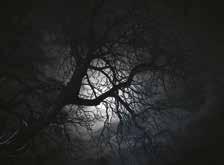
26 – 30 MAR

The Lyric Drama Studio presents this Appalachian folktale set in the Smoky Mountains. John, a witch boy who falls in love with Barbara Allen, is granted human form to woo and marry her on the condition that she remains true to him for a year. As the story unfolds it becomes clear that humans are all too capable of inflicting pain on one another without supernatural help.
04 MAY – 01 JUN
Set in the stifling heat of New Orleans’ Latin Quarter, wilting Southern beauty, Blanche DuBois, attempts to escape her former life and past trauma. Culminating in a violent clash of characters and natures, illusion and reality, A Streetcar Named Desire brings the subjects of identity, sexuality, desire and fate into stark light in this Pullitzer Prize-winning play by Tennessee Williams, directed by Irish Times Theatre Award winning director, Emma Jordan.

18 MAY – 08 JUN
Estranged siblings Jean and Gary are thrown back together when their mother passes away, leaving a small fortune under her bed – the only stipulation being that the money is used for them to buy a house together. As the two search for a new place to call home, dark secrets from the past threaten to reveal themselves. All Mod Cons, by Lyric Artist-In-Residence Erica Murray, was developed as part of the Lyric’s inaugural New Playwrights Programme 2017.
Find out more at lyrictheatre.co.uk/whats-on
At the beginning of 2019 we are delighted to be partnering up once more with Northern Ireland Opera to produce Sweeney Todd: The Demon Barber of Fleet Street by the legendary Stephen Sondheim and Hugh Wheeler.
At almost 90, Sondheim is our last living link to the great American musical composers of the mid-20th century. He was mentored by Oscar Hammerstein II, he wrote the lyrics to Leonard Bernstein’s score for West Side Story and he showcased Ethel Merman, one of the great performers of Broadway, as Mama Rose in Gypsy all before the age of 28. But Sondheim wasn’t going to settle down just to be a lyricist for other great composers even though he has an immense skill for word play. His ambition was to do the whole kit and caboodle. And this he achieved by the end of the ‘60s with his first authored work A Funny Thing Happened on the Way to the Forum As a composer this is where Sondheim’s true genius blossomed and the breath of his vision is extraordinary.
Today, there is no other major living composer of musicals with as deep and as wide an influence as Stephen Sondheim. There are plenty of composers who are more successful commercially. But nobody has challenged the structure of the musical – through choice of subjects and playful dissonance – so often as he has and yet remains at the very epicentre of the genre. He is an outsider allowed into the party but his very presence changes the tone of the evening and everyone leaves in some way changed. He is the game changer. To experience works like Company, Follies, A Little Night Music, Sweeney Todd, Sunday in the Park with George, Into the Woods, and Assassins is to see the American musical as one of the most challenging and rewarding art forms. It is to channel a unique viewpoint that allows us a way to deal with the vagaries of the world and the complex nature of human relationships in a fresh and enlightened way.
The conception for the striking score of Sweeney Todd
itself seems to have had its gestation back in 1945 when a teenage Sondheim went to a cinema on Times Square and watched a richly atmospheric suspense thriller called Hangover Square. It’s a wonderfully creepy film directed with Hitchcockian skill by John Braham and starring the startling Laird Cregar, a gigantic actor who excelled at portraying charming but haunted psychopaths in his short, tragic career. He plays an Edwardian era composer who, tormented by a tonal pitch inside his head brought on by a desire for an ambitious young chorus girl (played with promiscuous glee by Linda Darnell), goes on a serial killing spree. The climax is terrific. It takes place in a lovely elegant room, full of lovely elegant people who have gathered to hear the composer’s new piano concerto. Laird goes mad, assaults the audience, burns the room and impressively manages to pound away at his macabre concerto until, finally, he is swallowed up in the flames during the last dying notes.
Most importantly the spooky, dissonant yet surging music was by Bernard Herrmann, the greatest composer in Hollywood’s history, and the 15 year old Stephen went home and played the concerto over and over from memory. The spirit of Herrmann’s mad concerto haunts the score for Sweeney Todd as Sondheim himself admits. It is “full of unresolved dissonances that leave an audience in a state of suspense”.
I am delighted that NI Opera have asked the Lyric along for the crazy Grand Guignol waltz of Sweeney Todd and that we have collectively assembled such a fantastic cast and design team to get their teeth into this truly superb score and story.

I hope you enjoy.
Jimmy Fay Executive Producer Lyric Theatre
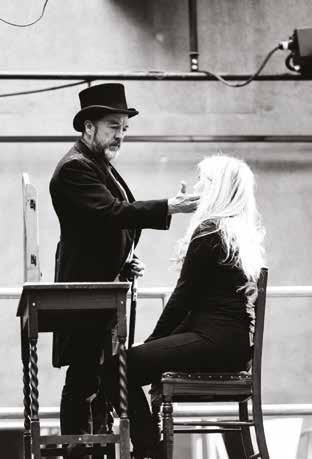

Attend the tale of Sweeney Todd, but expect no absolution! Those who moralise must fear judgement, in this frightful spectacle of death and baked delights.

Years after his forced exile, Benjamin Barker returns to Victorian London under the name of Sweeney Todd, seeking revenge for the loss of his family at the hands of the “honourable” Judge Turpin. His companion is young sailor Anthony, who rescued Sweeney at sea. Upon their arrival, the men are greeted by a beggar woman. “Don’t I know you”, she asks Sweeney as he shoves her out of his way. Back on his old stomping ground on Fleet Street, he meets hardy pie shop owner Mrs. Lovett. She recognises him as the barber Benjamin Barker who was convicted under wrong charges, his helpless wife Lucy lured to the Judge Turpin’s house by his assistant Beadle, and there, abused by the guardian of the law. To his inquiry about the whereabouts of Lucy and his daughter Johanna, Mrs. Lovett professes that Lucy poisoned herself and Johanna has since been in the care of the Judge. Sweeney swears to seek justice and Mrs Lovett persuades him to take up his old trade. She has kept his knives.
Meanwhile, Anthony has spotted a young woman singing at a window of a stately house: Johanna. Immediately infatuated, he vows to liberate her. On the market place, the flamboyant Italian barber Adolfo Pirelli and his boy assistant Tobias launch a sales pitch for an elixir promising to cure baldness. Sweeney exposes both the product and its maker as a sham and invites an onlooker for a free shave: Beadle. When Pirelli shows up at the barber shop a little later to threaten his competitor, Sweeney slits his throat. Judge Turpin, who has decided to legitimise his uncontrollable lust for Johanna by marrying her, is advised by Beadle to get spruced up at Sweeney Todd’s parlor. Sweeney can’t believe his luck when the Judge turns up, but Anthony barges in to announce his plans to elope with Johanna. The Judge hurries out of the building, leaving Sweeney crazed with anger. Learning about Pirelli’s untimely death, Mrs. Lovett delights at the unexpected meat supply and embraces Sweeney’s vendetta against humanity as her new business model.
Are you enjoying your pies? They might have a little priest in them. Business is flourishing at Mrs. Lovett’s pie shop, and Sweeney is busy dealing with customers that shall never return. Anthony arrives with news: The Judge has admitted Johanna to Jonas Fogg’s asylum. Sweeney instructs Anthony to pose as a wigmaker and rescue her. As Anthony leaves, Sweeney notifies the Judge of Anthony’s plan by letter, hoping to lure him back to the shop. Tobias, who now works for Mrs. Lovett, has become suspicious of Sweeney. Mrs. Lovett distracts him by explaining how to work the meat grinder, and leaves him locked in the bake house. Upstairs, she finds Beadle, who has come to investigate the strange smells emanating from the building. When Sweeney arrives a little later, Beadle is happy to take the barber up on his offer for a free shave. It’s the end of Beadle, who is dropped down the chute, landing right in front of terror-stricken Tobias. Anthony and Johanna escape the asylum after Johanna has taken hold of her lover’s gun to shoot Mr Fogg, the institution’s owner. Back at the barber shop, Johanna hides as the Beggar Woman arrives, looking for Beadle. Sweeney returns, frantic with the anticipation of welcoming his nemesis, and kills the intruder. Next is the Judge, who has returned to seize Johanna. Down below, Mrs Lovett struggles to keep up. When getting the Beggar Woman ready for the oven, Sweeney joins her, and recognises the lifeless face. Sweeney’s blind anger turns against his disingenuous partner in crime, who makes a last unsuccessful attempt to befuddle him with her affections. Tobias finds Sweeney, picks up the razor and finishes him off. That’s the end, but the meat grinder keeps turning. We better feed it.


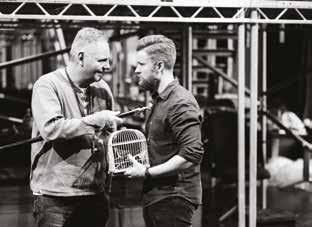

“THEY ALL DESERVE TO DIE. EVEN YOU, MRS. LOVETT, EVEN I.”
(FROM “EPIPHANY”)
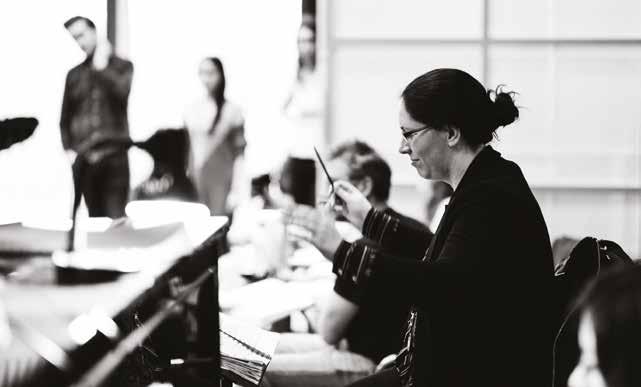
The gruesome tale of Sweeney Todd: The Demon Barber of Fleet Street has frightened and fascinated generations since it first emerged in the mid-19th century. What has drawn you to this piece?
WS: I was very excited to present this piece as early as possible in my tenure at NI Opera. I think that this version of Sweeney Todd will always be relevant, because it transcends the period it was written in. The Christopher Bond play (1973), which Sondheim and Wheeler used as their model, is very of its time in its framing of the narrative as a social critique. Bond uses the theatre to comment on the oppressive mechanisms of a capitalist society, in which Sweeney is the victim of his circumstances. If the musical was only about that, I don’t think it would have the same draw as it does. I have a feeling that Sweeney Todd has the capacity to have the same longevity as some of the core operatic repertoire. Like other pieces that have entered the canon of classics, it asks us questions rather than providing answers, and it does so in thought-provoking, often opaque ways.
There has been much debate about the genre identity of Sweeney Todd. It has been described as a melodrama, even an opera. What makes it so difficult to classify this work?
SH: I think this dilemma has to do with the quality of how the score is put together. The score is very well constructed and demands a certain level of artistry, security with pitch and rhythm, and confidence in those moments when the music invites the singer to be flexible and spontaneous. These are characteristics that could be described as operatic.
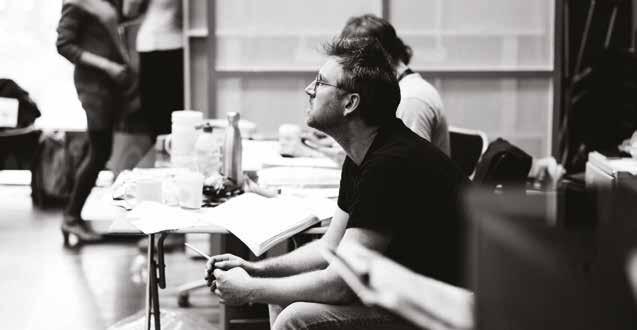
The challenge for us as performers is to use that flexibility to the greatest possible effect and make the piece sound fresh every night. Having said that, we need to make sure to have internalised the tempi, which are almost Mozartian in their precision.
Perhaps the dramatic cohesion of the music would also point towards an identification as opera?
SH: Yes, we could almost compare Sondheim’s use of Leitmotiv to Wagner. Take for example the Beggar Woman. She has a split personality, and accordingly we have two very contrasting musical motifs. One is the elegiac “alms, alms”, which sounds immediately portentous, and then we have this brusque dance music, which is related to the scene which reveals her abuse by The Judge. For Sweeney’s music, Sondheim was inspired by the Gregorian chant “Dies Irae”, an ancient hymn about Judgement Day. He takes the material, twists and turns it, with reminiscences even emerging in Anthony’s “Johanna”, which on the surface seems to be completely removed from Sweeney’s sound world. The ways in which the musical numbers are interrelated is genius!
How do you treat the chorus, which seems to be if not exactly encouraging Sweeney in his killings, then at least sympathetic to his predicament?
WS: A problem with the original production by Hal Prince is the choice it makes about how to present the chorus. Since then, the crowd has habitually been treated as the “townsfolk”, basically just the people that populate the show and serve as a narrative
voice. I think it goes further. I would suggest that Sondheim has added this chorus, which doesn’t exist in the Christopher Bond play, in the capacity of a Greek chorus – with a similar dramatic weight.
Right at the beginning of the show, the chorus warns us that Sweeney Todd will mercilessly kill “those who moralise”. What is the significance of this statement?
WS: The chorus are passing comment on the action but they also serve as a bridge between the audience and the action on stage. I have always found it strange when productions have presented them to exist on the narrative level only. I think their purpose is multi-layered. In my understanding, the comment about moralisers steers the focus in two different directions: not only inwardly on the piece, but also outwardly to the consumers of the show. There is also another side to this. Interestingly, Sondheim has written about Sweeney as a projection of himself. By his own account, he somehow feels close to a character driven by a destructive mania and obsessed with taking revenge on the world around him. It’s not that far of a leap to conceive Sweeney’s traits as metaphorical and understand Sondheim as having a slightly conflicted relationship with the audience – as all theatre people arguably do.
The narrative presents us with complex moral dilemmas. Do Sweeney’s motives justify his cruel actions, and who has the right to judge over others? Is Sondheim playing with our discomfort of having to decide between right and wrong?
WS: The writing in most of the ensemble numbers is quite playful, and funny. The macabre humour takes the chorus out of the play and engages us in a way that makes it tricky to form clear judgements because we can be simultaneously repelled and entertained. The chorus members arguably share that enjoyment with the audience. I think the social critique that results from this reading is much sharper than what the Christopher Bond version achieves. His play hopes to elevate the audience by showing that capitalist mechanisms are destructive. He presents the theatre as a place of moral and spiritual betterment. I think Sondheim and Wheeler question that interpretation and place it in an ironic context. They rather seem to suggest that the audience, simply by being in the theatre, becomes a moral actor. We assume that the piece invites us to make judgements about who is right or wrong, but the satire and even the accusation is on the audience rather than the characters.
In your stage sets, we see a continuation of the Lyric auditorium aesthetic. The boundaries that clearly distinguish between “them” and “us” blur. Why did you choose this device?
DK: There are several ideas behind this. On the one hand we wanted to play with the relationship between the viewer and the protagonists. On the other hand we thought about Sondheim's play with the nature of the theatre itself, and the audience’s role within it. Is the theatre a place of judgement or is it really a fun house or ghost train ride? This set plays with this idea and enables us to transit quickly between both worlds.

“I LIKE THE IDEA OF THEATRE LEVELLING US ALL OUT”
Does the theatre become reality, or are we all trapped in a huge theatrical display?
DK: That is a nice idea, and both are true, because these stories also exist in our subconscious and we don’t leave them behind when we leave the theatre. We already bring the desire for the grotesque and the grisly humour into the building with us — this is part of our human condition.
As the audience, are we guilty for laughing at the cannibalism and enjoying the gory pies from the safety of our seats?
WS: I think that’s the trick of the piece. It is a sophisticated exploration of the Grand Guignol tradition, and I hope we can do it justice. The very first number, “The Ballad of Sweeney Todd”, is telling us that the action is going to reconstruct something that has already happened. We are in fact at the end of the play at this point. The implication is that we will be invited to pass judgement, only that this judgement is gradually replaced with comedy and entertainment. Ideally, as an audience we will at some stage catch ourselves laughing at the macabre spectacle. We are trying to make the audience feel conscious about the consumption of a product. The question about the complicity is important. I guess it was a bigger issue for the Romans when they went to the arena, but it applies here also: how do we process instincts that we have had for millennia? Sweeney is a piece that asks fundamental questions about what an audience is, and by extension about what it means to be human. I like the idea of theatre levelling us all out.
The Sweeney Todd music is eclectic in many ways. Could you for example comment on “By the Sea”, in which Sondheim surprises us with presenting the usually practical Mrs Lovett as having a sentimental side and dreaming of an idealised, almost paper-cut future life?
SH: He does so by using a burlesque music-hall style song, which wonderfully captures Mrs. Lovett’s naïve daydreaming at this point. There are other places where
Sondheim chooses quasi-pastiche writing to highlight character traits; for example the harmonium “Parlor Songs”, which sound like they could have been written in the 18th century, or Pirelli’s fake-Italianate music.

Sweeney’s discovery of the Beggar Woman’s true identity as his long-lost wife is a dramatically crucial moment. How is this realised musically?
SH: It is done very cleverly. As soon as Sweeney realises who the Beggar Woman is, we hear a reminiscence of her “alms, alms” music. A light bulb moment for Sweeney, in the worst possible way, at the worst possible time. As he discovers Mrs. Lovett’s lie, the light-hearted music they shared previously returns, now used as a cynical accusation. Their memories are now twisted, and so is the music.
How do your costume choices reflect the characters’ internal development throughout the narrative?
DK: The clothes they wear show us a couple of things. They show us a character’s material circumstances, and these may change over the piece, but they also show us how a character feels about themselves, and what sort of image they try to project: just like clothes in real life. But, by reducing the colour scheme we have tried to add a degree of artificiality and emphasize the drama.
How important are the references to Victorian England in your vision of the story?
DK: It was important for us to maintain a link with the Victorian period since it is an important basis for the piece, with the idea of convict transportations being central to the narrative. Of course it would be possible to make a totally contemporary show, but this would miss the point a little. The narrative is a fantasy. It is not a piece of 'realism'. And maintaining this Victorian element is very helpful in creating the fantasy world of the main story.
Questions by Judith Wiemers
Thou shalt not kill is not only the best known of the ten commandments, it is also one of those moral principles many of us hold to be true, always and everywhere. However, as we all know, in some circumstances people are killed even though it would be avoidable, whether it is in the form of the death penalty, or the targeted killings of terrorists. Many of these acts would not be called murder, which is commonly defined as the unjustified intentional killing of another human being. Sweeney Todd’s killings, on the other hand, clearly deserve that label. But does that also necessarily mean that we cannot morally justify at least some of his doings?
From an ethical point of view, Sweeney Todd presents us with an interesting dilemma, since he would not be in the situation he finds himself in at the beginning of the musical if he was living in a just and fair world. Todd was once an innocent citizen who, by no fault of his own, got in the way of a powerful judge and his libidinous desires. The experience of deep injustice at the hands of a guardian of the law, is what initially triggers Todd’s thirst for bloody revenge. Consequently, we could ask ourselves whether in a society in which the lives of ordinary citizens of the lower social ranks are considered worthless, and can be destroyed at the whim of the powerful, can violent acts against the oppressors become morally acceptable – despite our rational conviction that murder must be impermissible? The case of Sweeney Todd is of course an extreme example. His killing spree, which goes far beyond taking personal revenge on the judge and extends to people arguably as innocent as he used to be, does not seem to be morally justifiable in any way, shape or form. However, the question remains, whether murdering the perpetrator of a past injustice can ever be defensible.
From the viewpoint of most contemporary moral philosophy, Todd’s actions still appear morally impermissible. A Kantian approach, which focuses on the rights and duties of moral agents, values every person’s right to live so highly that many Kantians hold that the avoidable killing of another being can never be justified. While not all Kantians are quite as strict in their interpretation of what it means to have certain rights, Todd’s case does not seem grave enough to justify the taking of another person’s life. Similarly, most consequentialists, who believe that the moral permissibility of an action depends only on the outcomes of said action, would question whether
the end of Todd’s action, that is, taking revenge, can justify the means. While consequentialism – in principle – allows for the idea that the end sometimes justifies the means if it reflects an adequate weighting of costs and benefits, Todd’s plan to dispatch the judge seems to achieve very little with regard to the underlying cause of the original injustice: Namely the fact that the society Todd lives in is fundamentally unequal and unfair. The bar of moral justifiability for murder is extremely high and rightly so, which means that most moral philosophers probably would argue that Todd, despite the injustice he suffered, is not right in taking ‘justice’ into his own hands. Another question altogether would address our own instincts as the theatre audience. As Sweeney Todd becomes the judge of his own bloodthirsty law, can we watch without being complicit, and are we even allowed to enjoy the grotesque humour?...

THE QUESTION OF “WHO HAS THE RIGHT TO JUDGE?” WILL ALSO BE THE SUBJECT OF A PUBLIC DEBATE ON 9TH FEBRUARY, 5PM AT THE LYRIC. FREE ENTRY.
The characters of the barber Sweeney Todd, and his pie-baking accomplice Mrs Lovett are introduced in The String of Pearls: A Romance, attributed to Edward P. Hignston, George MacFarren, and James Malcolm Rymer amongst others, and published a in a series of fictitious short stories.
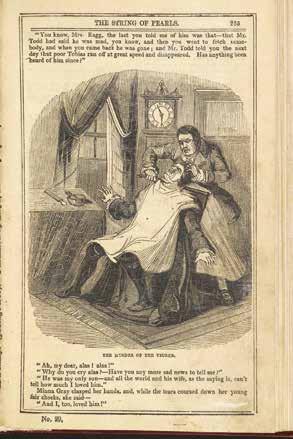

1847
The play The String of Pearls, written by George Dibdin Pitt, is performed at the Britannia Theatre, Hoxton. It was the first version to use the catchphrase now most associated with Sweeney: “I’ll polish him off”.
Actor Stanley Holloway releases a recording of the popular music-hall song “Sweeney Todd the Barber” by R.P. Weston.
1970
An updated and expanded version of The String of Pearls: The Barber of Fleet Street appears as a “penny dreadful” serial; cheap printed horror stories about notorious criminals.
1865

A one-act ballet adaptation with music by Malcolm Arnold (op.68) and choreography by John Cranko celebrates its world premiere at the Shakespeare Memorial Theatre in Stratford.
Andy Milligan’s Bloodthirsty Butchers is a violent film adaptation with graphic murder scenes. Its tagline was: “Their prime cuts were curiously erotic…but thoroughly brutal!”
1979
A musical version premiers at the Lyric Theatre, Hammersmith (The Demon Barber) with book and lyrics by Donald Cotton and music by Brian Burke, based on Pitt’s original play.
1973
Christopher Bond’s play Sweeney Todd, The Demon Barber of Fleet Street opens at the Theatre Royal in Stratford East (London). It served as the primary source for Sondheim’s musical.
1980
1928
1935
The second, but first surviving film version of Sweeney Todd stars Moore Marriot in the role of the murderous barber.
1926
J.P. Quaine writes the radio play Sweeny Todd, The Demon Barber of Fleet Street
British film pioneer George Dewhurst directs the first film adaptation of Sweeney Todd, as “a comedy burlesque stage play”.
1936
The first sound film version sees British horror actor Tod Slaughter (!) in the title role of Sweeney Todd, The Demon Barber of Fleet Street
Sweeney Todd, The Demon Barber of Fleet Street. A Musical Thriller, with music and lyrics by Stephen Sondheim and a book by Hugh Wheeler, premieres at the Uris Theatre in New York, directed by Hal Prince. The musical subsequently wins eight Tony Awards, including Best Musical, Best Book, and Best Performance by a Leading Actress (Angela Lansbury).
Sondheim and Wheeler’s “musical thriller” is staged at the Theatre Royal, Drury Lane in London, where the reception is initially less enthusiastic as on Broadway.
Recorded performance of Sondheim/Wheeler’s Sweeney Todd “Live in Concert”, played by the New York Philharmonic at Lincoln Centre, New York, featuring George Hearn as Sweeney Todd and Patti LuPone as Mrs Lovett. The Broadway revival embraces an experimental staging with all actors doubling as band members. The cast includes Michael Cerveris as Sweeney Todd and Patti LuPone as Mrs Lovett.
2008
Tim Burton’s film adaptation of the Sondheim/Wheeler musical is released as Sweeney Todd, The Demon Barber of Fleet Street. The film stars Johnny Depp as Sweeney Todd, Helena Bonham Carter as Mrs. Lovett, Alan Rickman as Judge Turpin and Northern Irish actress Jayne Wisener as Johanna. The production wins an Oscar for Best Art Direction and two Golden Globes.
FROM AN ADAPTATION BY CHRISTOPHER BOND
ORIGINALLY DIRECTED BY HAROLD PRINCE
ORIGINAL ORCHESTRATIONS BY JONATHAN TUNICK
ORIGINALLY PRODUCED ON BROADWAY BY RICHARD BARR, CHARLES WOODWARD, ROBERT FRYER, MARY LEA JOHNSON, MARTIN RICHARDS IN ASSOCIATION WITH DEAN AND JUDY MANOS

PERFORMED BY ARRANGEMENT WITH MUSIC THEATRE INTERNATIONAL (EUROPE) LIMITED
CAST
SWEENEY TODD STEVEN PAGE
MRS. LOVETT JULIE MULLINS
ANTHONY HOPE JOHN PORTER
JOHANNA JESSICA HACKETT
TOBIAS RAGG JACK WOLFE
JUDGE TURPIN MARK O’REGAN
THE BEADLE RICHARD CROXFORD
BEGGAR WOMAN ELAINE HEARTY
ADOLFO PIRELLI MATTHEW CAVAN
ENSEMBLE DAWN BURNS
ENSEMBLE CHRISTOPHER CULL
ENSEMBLE/JONAS FOGG ENDA KILROY
ENSEMBLE JOLENE O’HARA
ENSEMBLE/BIRD SELLER TOMMY WALLACE
CREATIVES
MUSIC & LYRICS STEPHEN SONDHEIM
BOOK HUGH WHEELER
CONDUCTOR SINEAD HAYES
DIRECTOR WALTER SUTCLIFFE
SET & COSTUME DESIGNER DOROTA KAROLCZAK
LIGHTING DESIGNER WOLFGANG GÖBBEL
SOUND DESIGNER IAN VENNARD
RÉPÉTITEUR KRYSTAL TUNNICLIFFE
DRAMATURG JUDITH WIEMERS
ASSISTANT DIRECTOR BENJAMIN GOULD
CASTING DIRECTOR CLARE GAULT
BAND
VIOLIN ALAN McCLURE
CELLO DAVE McCANN
BASS MARTINA MASTERSON WILLIAM COLE*
CLARINET WILLIAM CURRAN
BASSOON ÉANNA MONAGHAN PATRICK McERLEAN*
TRUMPET WILL PALMER
FRENCH HORN JACQUELINE McCARTHY
PERCUSSION RONAN McKEE
PIANO KRYSTAL TUNNICLIFFE
PLAYER
PRODUCTION TEAM
PRODUCTION MANAGER PÁDRAIG Ó’DUINNÍN ACTING COMPANY STAGE
MANAGER AIMEE YATES
DEPUTY STAGE MANAGER STEPHEN DIX
ASSISTANT STAGE MANAGER KERRI McGIMPSEY
COSTUME SUPERVISOR GILLIAN LENNOX
COSTUME ASSISTANT ERIN CHARTERIS
ACTING TECHNICAL MANAGER IAN VENNARD
TECHNICIANS STEPHEN CASSIDY ADRIAN WALL
MONITOR ENGINEER MATT RICE
COSTUME MAKERS SARAH CAREY MEL LYLE
LISA DUNE MARIAN HEAGRTY
NIAMH MOCKFORD
COSTUME BREAKDOWN UNA HICKEY CHRIS HUNTER
DRESSERS ARLENE RILEY
LAURA McALEENAN
MAKE-UP ARTIST NUALA CAMPBELL SET CONSTRUCTION GORMAN DISPLAY LTD CASTLE STAGE HIRE
LIGHTING PROGRAMMER KEVIN SMITH
PRODUCTION ELECTRICS RORY HARKIN PAUL ROONEY
THE LYRIC THEATRE AND NORTHERN IRELAND OPERA WOULD LIKE TO THANK:
STUART MARSHALL, GRAEME CALVERY, MARCUS PATTON, GILLIAN STEVENSON, GLADYS McCAGUE, QUARTER WEST, THE GARFIELD WESTON FOUNDATION, ESME MITCHELL
TRUST, KEITH McALISTER, CONOR MITCHELL, RUTH McGINLEY, FRASIER HICKLAND, MUSIC THEATRE INTERNATIONAL (EUROPE), SALLY IRWIN.
ACT 1: 1 HOUR 30 MINS
INTERVAL: 20 MINS
ACT 2: 1 HOUR
Steven Page Sweeney Todd
Steven worked as a trademark attorney before training at the National Opera Studio. His long and enduring career has seen appearances with all the major UK opera houses and festivals and throughout Europe, Australia and North America. He has particularly noteworthy associations with Glyndebourne, English National Opera, Royal Opera House, Opera North and Carl Rosa. His hugely varied roles include Nick Shadow in The Rake’s Progress all the major Mozart baritone roles, Pizarro in Fidelio, Paolo in Simon Boccanegra Mittenhofer in Elegy for Young Lovers, Fillipovich in Alexander Raskatov’s A Dog’s Heart, Walsingham in Damon Albarn’s Dr Dee Olin Blitch in Carlisle Floyd’s Susanna, Prus in The Makropulos Case, Balstrode in Peter Grimes‚ Spencer Coyle in Owen Wingrave, Minskman in Jonathan Dove’s Flight and most of the baritone/ bass Gilbert & Sullivan roles.
Most recently he has played The Stranger in Mamzer Bastard (ROH), Mr. Peachum in The Threepenny Opera (Lyric Theatre/Northern Ireland Opera), Anna Fewmore in Pleasure (Opera North), Old Man/Vagran in The Devil Inside (Scottish Opera/Music Theatre Wales), Judge in Sweeney Todd, (Welsh National Opera), Entertainer in Orango (Moscow).
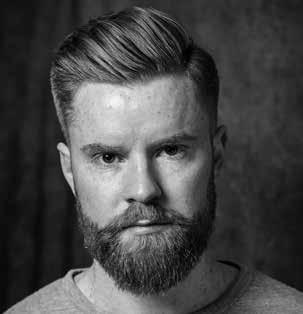
Other theatre work includes the title role in Sweeney Todd (Opera North and Brisbane), roles in Parade (Donmar Warehouse), in Candide (Paris, Milan and Tokyo) and in Oedipus (National Theatre with Ralph Fiennes), and he can be seen in the film Tomorrow La Scala!

Julie Mullins
Mrs. Lovett
Julie was born in London and was brought up in Australia. Her theatre credits include: We Will Live And Die In These Towns (Belgrade Theatre, Coventry); Ida Rubenstein workshop (The Playground Theatre, London); All The Girls You Are! (The Pheasantry, London); Body To Diet For (Etcetera & Landor Theatres, London); The Expat Wife (Singapore & Hong Kong Tour); As You Like It and Much Ado About Nothing (The Acting Factory, Sydney); As Time Goes By (Joan Sutherland Performing Arts Centre, Australia); They’re Playing Our Song (Asian & Middle Eastern Tour); Dearly Beloved (Bridewell Theatre, London); Triumphs and Mirth (Shakespeare’s Globe, London); They’re Playing Our Song (Haymarket Theatre, Basingstoke); Sleeping Beauty (Theatre Royal, Bath); Babes In The Wood (Sadlers Wells Theatre, London); The Big Smoke workshop (Playbox Theatre, Australia); Julie Sings Judy Garland (Mietta’s and Prior Engagements, Australia); Return To The Forbidden Planet (Australian Tour); Anything Goes (Australian & New Zealand Tour); Hating Alison Ashley (Theatre South, NSW & Victorian Tour); The Sentimental Bloke (Melbourne Theatre Company & Victorian Tour); True Patriots All; Tarantara Tarantara Tarantara Tarantara; The Hostage (Q Theatre, Australia); The Mathemagician (Toe Truck Theatre Company).

Television & Film: Neighbours VS Time Travel (Web Series, Freemantle Media); Neighbours (The Grundy Organization); Land Of Hope (JNP Films & Channel 7); Country Practice (Channel 7); Palace Of Dreams (ABC); Wild and Wooley (ABC); Butterfly Island (Independent Films).
Hailing from Donegal, John is a graduate of Royal Academy of Music, London and University of Ulster. He currently studies under the tutelage of Rosa Mannion, Catrin Wyn-Davies and Audrey Hyland. Also an alumnus of the Georg Solti Accademia in Italy and Les Azuriales in France, John has found professional advance as a former Young Artist for Garsington Opera and Northern Ireland Opera. More recently he was declared a finalist in the Accademia Teatro alla Scala competition, Milan.
Recent highlights: Tony in West Side Story (Bath Festival), Pedrillo in Die Entführung aus dem Serail (Diva Opera), Kornélis in La princesse jaune (Northern Opera Group), and Borsa and Il Duca (cover) in Rigoletto (Northern Ireland Opera).
On the concert platform, John has performed works including personal favourites Bach’s St John Passion, Beethoven’s Symphony No. 9 and Rossini’s Petite Messe Solennelle. Also confident in recital John enjoys breathing life into characterful song cycles such as Schubert’s Schwanengesang Beethoven’s An die ferne Geliebte, and Finzi’s Til Earth Outwears
John is grateful for the support he has received from The Countess of Munster Musical Trust, The Derek Hill Foundation, The Kathleen Trust, The Richard Lewis Jean Shanks Trust, The Nicholas Berwin Charitable Trust, and The International Opera Awards Foundation.
John is very much looking forward to his debut at the Lyric Theatre.
Jessica Hackett is a 23-year old lyric soprano from Co. Meath who is currently a member of the Northern Ireland Opera Studio. She is studying under the tutelage of Colette McGahon-Tosh and Mairead Hurley at DIT-Conservatory of Music and Drama and will continue her studies in the form of a Masters in Opera Performance at the Royal Welsh College of Music and Drama for the next two years. Jessica has played several leading roles all over the country and has been awarded from various competitions over the last number of years. Her most notable award was 2016 ‘Best Female Singer’ in AIMS for the role of Mabel in The Pirates of Penzance, followed by a 2017 nomination as Sarah Brown from Guys and Dolls
Theatrical and Operatic engagements include: Gilda (cover) in Rigoletto, Fanny in La Cambiale di Matrimonio (Northern Ireland Opera), Cendrillon in Cendrillon (North Dublin Opera), Mabel in Pirates of Penzance, Sarah Brown in Guys and Dolls (T.M.S), Semi-Chorus Dream of Gerontius (Maynooth University), Christine Daaé in Phantom of the Opera (F.A.C.T) (S.E.T.G), Johanna in Sweeney Todd (C.M.D.S), Fantine in Les Misérables (M.S.P.A), Cinderella in Into the Woods (S.E.T.G). Featured soloist in MU Chamber Choir World Tour. Extracts as The Countess Almaviva in Le nozze di Figaro Arsamenes in Serse, Frasquita in Carmen and Gretel in Hänsel und Gretel
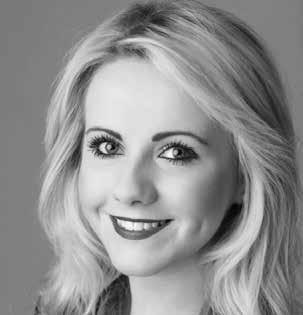
Jack Wolfe
Tobias Ragg
Jack trained at Mountview Academy of Theatre Arts, graduating in 2017.

Theatre includes: Huck in Huckleberry Finn (Lyric Theatre, Belfast), Danny and understudy Pinocchio in Pinocchio (National Theatre) directed by John Tiffany; The March Hare in The Mad Hatter’s Tea Party (Chipping Campden); his professional debut as Louis Braille in The Braille Legacy (Charing Cross Theatre).
Workshops and Readings include: Eamon in Sing Street directed by Rebecca Taichman; NT Connections; Eros in Antony and Cleopatra (NT Studio) directed by Simon Godwin; Christopher Boone in The Curious Incident of the Dog in the Night-Time (NT Studio); Huck in Huckleberry Finn (Belfast Lyric).
Television includes: Lead in CocaCola Christmas Ad 2018; George Chase in Father Brown (BBC); Samuel Buscombe in Hetty Feather (CBBC); Son in My Life The Musical (Universal/ Monkey Kingdom).
Mark O’Regan Judge Turpin
Mark lives in Dublin. His theatre and film credits include:

Gate Theatre: Assassins, Juno and the Paycock, A Month in the Country, Pride and Prejudice, The Vortex, Arcadia, The Old Curiosity Shop, Sweeney Todd, Festen, Fathers and Sons, Sharon’s Grave, Peer Gynt, Three Sisters, The Threepenny Opera, London Assurance, A Christmas Carol, As You Like It, All My Sons and The Rivals.
Abbey and Peacock Theatres: Alice in Funderland, The School for Scandal, Do Not Like Thee Dr Fell, The Plough and the Stars, Juno and the Paycock, The Memory of Water, The Invisible Mending Company, Observe the Sons of Ulster Marching Towards the Somme, Saint Joan, The Last Apache Reunion, A Strange Occurrence on Ireland’s Eye, Chamber Music and The Broken Jug.
Other theatre credits: Borstal Boy, Translations, The Field, Taking Steps (Gaiety Theatre) King Ubu (Galway Arts Festival); Bleeding Poets (New Theatre); The Ghost Show (West Cork Fit-Up Festival); Eejit of Love (Samuel Beckett Theatre); Dodgems (O’Reilly Theatre); Anglo the Musical and Angela’s Ashes the Musical (Bord Gais Theatre & Grand Opera House)
Film and Television: Nighthawks, Revenge, Upwardly Mobile, Showbands (RTÉ) Father Ted (Channel 4); Anytime Now (BBC); The Dawning, The Commitments, The Life of Reilly, Black Day at Blackrock, Angela’s Ashes, Anytime Now, Into the West, Uncle Bill’s Barrell, The Last of the High Kings, Leap Year, Milo and more recently Blood.
John Porter Anthony Hope Jessica Hackett JohannaRichard Croxford’s career has included acting, writing and directing for numerous theatre companies locally, nationally, internationally and in London’s West End on three occasions. Favourite acting roles include Shylock in The Merchant of Venice, Lord Goring in An Ideal Husband, Chris Keller in All My Sons, Dracula in Dracula, Heathcliff in Wuthering Heights, Pip in Great Expectations and Djuka in Mirad; a Boy from Bosnia.
In the late 90s Richard started moving into directing theatre. He took over as Artistic Director of Replay Productions in 2000, producing work for children and young people and then as Artistic Director at the Lyric Theare in 2008, overseeing the launch of the new theatre’s artistic programme until the end of 2013.
Most recently Richard has been working as a freelance artist again, directing Abigail’s Party (The Mac), acting for television in Mother’s Day, Mrs. Wilson and Soft Border Patrol and the feature film Trautmann

Thanks to a grant from the Arts Council of Northern Ireland he is currently also writing for theatre (a new musical piece set in a Bingo Hall - Bingo!).
He is delighted to be working with Northern Ireland Opera and the Lyric Theatre again, having played Tiger Brown in The Threepenny Opera last year.

 Elaine Hearty Beggar Woman
Elaine Hearty Beggar Woman
Elaine trained at DIT Conservatory of Music and Drama. Theatre credits include Angela’s Ashes (Lime Tree Theatre, Bord Gais Energy Theatre, Grand Opera House); Elvis is My Daddy (Civic Theatre, Axis Theatre, Olympia Theatre); Listen To My Heart (National Concert Hall, An Taibhdhearc Galway, Watergate Theatre); Rent (Cork Opera House/ Wexford Opera House). Vagina Monologues (National Tour); Seagulls Dance (Draoicht); Alice the Musical (Marketplace Theatre/Pavillion Theatre); Slice of Saturday Night (Spirit Nightclub); RSC’s The Lion The Witch and The Wardrobe (Cork Opera House); Death of Cabaret (Dublin Fringe); Beauty and the Beast (St Anthony’s Theatre); Oklahoma (Gaiety Theatre, Cork Opera House, Civic Theatre); Fiddler on the Roof (Gaiety Theatre).
Film/TV/Radio Credits: Damo and Ivor, Fair City (RTE); City Of Ember (Metropolitan Films); The Exorcism Diaries (Frame It Productions); Princess Rehab (Park Pictures); Perspectives (Frame It Productions); Get Me Back (Frame It Productions); Jo and Jack Cartoon (Dancing Girl Productions); Dad The Impaler (Kavaleer Productions); Eircom Phonewatch Ad; DID Electrical Ad (BBDO; Electric Ireland Ad (Cawley/Nea); Fitting In Radio Play (Newstalk); The Last Summer Radio Play (Newstalk).
Awards/Accomplishments: Elaine is the winner of the 2FM Song Contest with her own composition, and writes and produces films as Director at Smart Blondes Productions. She is the winner of the first “Short Film Slam” with I AM JESUS - Galway Film Fleadh.
Matthew Cavan Adolfo
PirelliMatthew has become a very well known entertainer on the cabaret scene in Northern Ireland for his alter-ego Miss Cherrie Ontop, who is the resident drag artist in the Cabaret Supper Club, Belfast.
Theatre credits include: Jason in Bison (Theatreofpluck) at Brian Friel Theatre and The Oval House Theatre; Himself in Glory (Theatreofpluck) Outburst 2016; Dwight in Elegies for Angels, Pucks and Raging Queens at The Black Box; Frank-N-Furter in Rocky Horror Cabaret Show (Hotchpotch) at Cabaret Supperclub; Audrey II in Little Cabaret of Horrors (Hotchpotch); Davy Harrison in Rip Her To Shreds at The Black Box; King of Gooseland in Mother Goose (Qdos) at the Grand Opera House; Abanazar in Aladdin (C21) at The Braid.
Matthew is a member of The Belfast Ensemble and was Associate Director on The Doppler Effect. The Hapsburg Tragedies, and The Fall of the House of Usher, and has performed in Ten Plagues and Abomination: The DUP In Concert He is currently working on The Musician, a children’s horror opera. He has worked with the Lyric Theatre as Assistant Director on The Ladykillers and as Mrs Peachum in The Threepenny Opera
Born in Belfast, Dawn Burns is a former winner of the NI Opera Festival of Voice (2012) and recipient of the Arts Council / BBC NI Young Musicians’ Platform Award (2014-2016). Dawn graduated with distinction from the MA Opera course at the Royal Welsh College of Music and Drama, studying with Suzanne Murphy.

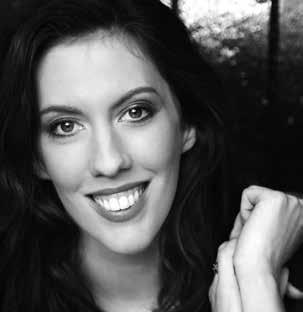
Last year Dawn was a member of the NI Opera Studio Artist programme. Her roles with the company include Clarina Hidden Extras, La Cambiale di Matrimonio, Dorabella The School for Lovers, Pamplemousse The Chronic Identity Crisis of Pamplemousse and Master of Ceremonies Midnight Vanities Other operatic roles include Nancy in Martha (Burry Port Opera), Ino in Semele (Mid Wales Opera) and Narciso in Agrippina (Irish Youth Opera). Dawn is a former Young Artist at Mid Wales Opera, where she covered the role of Mercedes in Carmen
Dawn has worked in the chorus at Irish National Opera, Scottish Opera, Grange Park Opera, Opera Holland Park and The National Gilbert and Sullivan Company. Her concert highlights include performances with the Ulster Orchestra, the BBC Proms and BBC Cardiff Singer of the World Fringe Events. Radio appearances include BBC Radio 3’s In Tune, BBC Radio Ulster’s The Arts Show and Classical Connections
Christopher Cull EnsembleBorn in Warrenpoint, Christopher currently lives in London. He has trained at Queen’s University Belfast, Royal Irish Academy of Music, Guildhall School of Music and Drama and The National Opera Studio.

Theatre credits include: Marcello
La bohème (Opera Holland Park
Christine Collins YAP); Masetto, Don Giovanni (NI Opera) Tarquinius
The Rape of Lucretia (GSMD); Lelio
Le donne curiose (GSMD); Valentin
Faust (Clonter Opera); Bank Account
Billy The Rise and the Fall of the City of Mahagonny (Opera Theatre Company); Le Geôlier / Javelinot Dialogues des Carmélites (Grange Park Opera); Lane/Merriman
The Importance of Being Earnest (NI Opera /Wide Open Opera);
Assassin/Apparition Macbeth (NI Opera); and Collatinus The Rape of Lucretia (Irish Youth Opera).
Upcoming engagements:
Zaretsky Eugene Onegin (Buxton Opera Festival).
Awards/ Additional information:
2014 BBC NI & Arts Council of Northern Ireland Young Musicians’ Platform Award Winner.
Enda Kilroy Ensemble
Originally from Galway, Enda is delighted to be back at the Lyric Theatre. Recent work includes:
The Colleen Bawn (Lyric Theatre & Bruiser Theatre Co.); Hamlet, King Lear and Macbeth (Second Age); Trad (Perth Arts Festival, Australia); The Lonesome West (Lyric, Belfast);
Twelve Angry Men, Alone It Stands (Lane Productions); Song of the Yellow Bittern (Druid); Swans, Boots and Boxes, Alice Trilogy, The Tempest, The Colleen Bawn, Juno and the Paycock (Abbey Theatre); Freedom of the City (Lincoln Festival, New York); Meltdown, Hamlet, Trousers, The Real Thing (Guna Nua); The Dublin Trilogy (Passion Machine); Green Street (Dublin Fringe Festival); The Fourth Wise Man, Playing from the Heart (The Ark); Lovers (Theatre Clwyd); Misiun ar Muir (Expo ’92, Seville, Spain); Paidin Mhaire, Paidin Mire (Na Fanaithe/ Taibhearc); God of the Hatchman, Philadelphia, Here I Come, Famine, Rough for Theatre, Dancing at Lughnasa and The Life of Stuff (Punchbag).
Film and TV includes: Brood, League of Gentleman’s Apocalypse (Universal); The Clinic, Legend, Camera Cafe, Fair City and Bull Island (RTÉ); Ripper Street, Camelot and The Chosen. Enda also wrote and co-performed Nauseating Couple, which premiered at the Pori Arts Festival, 2018, in association with Culture Ireland.
Enda recently won the Irish Novel Fair, 2017 with his first book, ‘The Last Carnival’.
Richard Croxford The Beadle Dawn Burns EnsembleJolene currently resides in her hometown, Belfast. She graduated from Queen’s University, Belfast with a degree in Engineering before training through The London College of Music.
Theatre credits include: Good Vibrations, (Lyric Theatre); The Threepenny Opera (Lyric Theatre and NI Opera); The Elves and the Shoemaker, 25th Annual Putnam County Spelling Bee (The MAC); Romeo & Juliet (Grand Opera House); Sleeping Beauty (Belfast Waterfront).
TV/Film credits include: My Mother and Other Strangers (BBC); Marú, Scúp, and Cracking Crime (RTÉ).
Jolene has also been a main vocalist in Lush! Classical at The SSE Arena, Belfast with The Ulster Orchestra every year since 2016.
Tommy Wallace Ensemble
Tommy is a native of Northern Ireland and trained at the University of Leeds with BA Hons in Drama and English with a Postgrad. from Guildford School of Acting.

Theatre credits include West Side Story (Opera Northern Ireland); A Chorus Line, Godspell, and Grease (Ulster Theatre Company); The Millies and Flaming Fables (Replay Theatre Company); Candide (Bruiser Theatre Company); A Taste of Honey (Yorkshire Playhouse); Lolita (New York Fringe Festival); The Nutcracker and Swan Lake (Birmingham Royal Ballet); Cinderella (Qdos Entertainment at the Grand Opera House Belfast and New Theatre Hull).
Lyric Theatre credits include Pinocchio, Hansel and Grettel, Alice in Wonderland. The Wizard of Oz, Molly Wobbly’s Tit Factory (also at Edinburgh Fringe) Cinderella, Sleeping Beauty, Smiley, and The Threepenny Opera (co-production with Northern Ireland Opera).
Television and radio credits include Is It Me? (BBC Radio N. Ireland); Heartburn Hotel (BBC Two); A Touch of Frost (Yorkshire Television).
Stephen Sondheim wrote the music and lyrics for Saturday Night (1954), A Funny Thing Happened On The Way To The Forum (1962), Anyone Can Whistle (1964), Company (1970), Follies (1971), A Little Night Music (1973), The Frogs (1974), Pacific Overtures (1976), Sweeney Todd (1979), Merrily We Roll Along (1981), Sunday In The Park With George (1984), Into The Woods (1987), Assassins (1991), Passion (1994) and Road Show (2008) as well as lyrics for West Side Story (1957), Gypsy (1959) and Do I Hear A Waltz? (1965) and additional lyrics for Candide (1973).
Anthologies of his work include Side By Side By Sondheim (1976), Marry Me A Little (1981), You’re Gonna Love Tomorrow (1983), Putting It Together (1993/99) and Sondheim On Sondheim (2010).
He composed the scores of the films Stavisky (1974) and Reds (1981) and songs for Dick Tracy (1990) and the television production Evening Primrose (1966). His collected lyrics with attendant essays have been published in two volumes: Finishing the Hat (2010) and Look, I Made A Hat (2011).
In 2010 the Broadway theater formerly known as Henry Miller’s Theatre was renamed in his honor.
Hugh Wheeler was a novelist, playwright and screen writer. He wrote more than thirty mystery novels under the pseudonyms Q. Patrick and Patrick Quentin, and four of his novels were transformed into films: Black Widow, Man in the Net, The Green-Eyed Monster and The Man with Two Wives. For films he wrote the screenplays for Travels with My Aunt, Something for Everyone, A Little Night Music and Nijinsky
His plays include Big Fish, Little Fish (1961), Look: We’ve Come Through (1961) and We Have Always Lived in the Castle (1966, adapted from the Shirley Jackson novel), he co-authored with Joseph Stein the book for a new production of the 1919 musical Irene (1973), wrote the books for A Little Night Music (1973), a new production of Candide (1973), Sweeney Todd, the Demon Barber of Fleet Street (1979, based on a version of the play by Christopher Bond), and Meet Me in St. Louis (adapted from the 1949 M-G-M musical), contributed additional material for the musical Pacific Overtures (1976), and wrote a new adaptation of the Kurt Weill opera Silverlake, which was directed by Harold Prince at the New York Opera.
He received Tony and Drama Desk Awards for A Little Night Music, Candide and Sweeney Todd. Prior to his death in 1987 Mr. Wheeler was working on two new musicals, Bodo and Fu Manchu, and a new adaptation of The Merry Widow
Irish conductor Sinead Hayes is equally at home working with choir, orchestra and opera. She is in her fifth season as conductor of Belfast’s Hard Rain Soloist Ensemble, with whom she has premiered works by Irish and international composers.
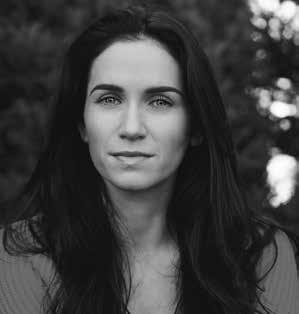
Sinead studied violin at the Royal Irish Academy of Music, graduated with a BMus in violin and composition from City University, London, and completed her MMus in orchestral conducting at the Royal Northern College of Music, Manchester, winning the Mortimer Furber conducting prize. Her teachers and masterclass mentors have included Johannes Schlaefli, Mark Shanahan, Alex Ingram, Sir Mark Elder, Clark Rundell and Martyn Brabbins.
Last season saw her debuts with Irish National Opera (Mozart: The Opera Director), Northern Ireland Opera (Weill: The Threepenny Opera) and Opera Collective Ireland, alongside return appearances with the RTÉ National Symphony Orchestra and RTÉ Concert Orchestra. She also made her Berlin Philharmonie debut, playing Irish fiddle in two of the Berlin Philharmonic’s family concerts, performing alongside members of the orchestra.
Sinead has been appointed Irish National Opera Studio conductor for 2018/2019, where she is assistant conductor and chorus director for the company’s productions, as well as conducting performances of Mozart’s The Magic Flute in May 2019. This season she also returns to conduct productions for Northern Ireland Opera (Sondheim’s Sweeney Todd and Greg Caffrey’s The Chronic Identity Crisis of Pamplemousse) and Opera Collective Ireland (Raymond Deane: Vagabones).
Walter Sutcliffe DirectorWalter Sutcliffe has directed highly acclaimed opera and theatre productions internationally and has been Artistic Director of Northern Ireland Opera since January 2017. His production of Tiefland for Opera Toulouse was nominated by French magazine Forum Opera as best international production 2017. His productions for Opera Frankfurt of L’Orontea and Owen Wingrave were nominated in German magazine Opernwelt in 2015 and 2010 respectively, and his production of Così fan tutte won Best Design and Best Female Performer at the Estonian Theatre Awards 2009.
Opera productions include Tiefland (Theatre du Capitôle, Toulouse), Rigoletto (Il Municipal, Santiago di Chile), Otello (Teatro Regio, Torino), The Turn of the Screw (Theatre du Capitole, Toulouse), L’Orontea, Owen Wingrave and Ghost Sonata (Oper Frankfurt), Le Grand Macabre and Der Zwerg (Theater Chemnitz), La traviata and Luisa Miller (Braunschweig), Kiss me Kate and Werther (Magdeburg), Manon Lescaut, Don Giovanni and Orpheus in the Underworld (Osnabrueck), Zar und Zimmerman (Bremerhaven), Die Fledermaus (Halberstadt), Albert Herring (Landestheater Linz), Così fan tutte and Carmen (Estonian National Opera, Tallinn), Tippett’s The Knot Garden (Klangbogen Festival, Vienna), and Janáček’s Sarka (Dicapo Opera New York). Theatre work includes Strindberg’s The Great Highway (Gate Theatre, London), Fry’s The Lady’s not for Burning (Finborough Theatre, London) and Stravinsky’s The Soldier’s Tale (BAC, London)
Recent productions include The Threepenny Opera and Rigoletto in Belfast and Agrippina at the Grange Festival, UK. Future productions include Rodrigo for the Handel International Opera Festival Goettingen, Gounod’s Faust for Badische Staatstheater, Karlsruhe, and Die Fledermaus for Northern Ireland Opera at the Grand Opera House, Belfast.
Jolene O’Hara EnsembleDorota Karolczak
Set and Costume Designer
Dorota is a freelance designer based in Berlin. She has worked on numerous productions for theatres including Semperoper Dresden, Deutsches Theater Berlin, Graz Opera, Staatstheater Wiesbaden , Halle Opera, Theater Augsburg and Polish National Opera, where she co-designed Paderewski’s Manru in cooperation with Opera Poznan. After initially studying architecture in Spain, Poland and Germany, she worked as an architect with Juan Domingo Santos and Alvaro Siza in Granada. She later studied scenic design at the TU Berlin where she graduated with Excellence. Her design work has included short films, commercials, music videos, feature films, curated exhibitions and events. Recent projects include the design of the commercial spaces for the exhibition ‘Magic City’ which is currently touring major European cities, a European Tour of the rock musical Rent and set and costume design for The Threepenny Opera (Northern Ireland Opera, Lyric Theatre, Belfast and Scottish Opera). Current projects include costume design for Faust (Badisches Staatstheater Karlsruhe). .
Wolfgang Göbbel
Lighting Designer
Wolfgang has been working in the theatre lighting industry for many years and has worked in all aspects of live entertainment from theatre, opera, ballet and musicals. In 2011 he was awarded the Knight of Illumination in Opera Lighting.
He has worked extensively in the UK, Germany and Europe and has had productions in Australia, Japan, Russia, Hong Kong and the United States. Open-air opera productions include: Loreley (St. Gallen Switzerland, directed by David Alden); Aida (Bregenz Festival, directed by Graham Vick); La Bohème (Bregenz Festival, directed by Richard Jones and Antony McDonald); and Un Ballo In Maschera (Bregenz Festival, directed by Richard Jones and Antony McDonald).
Krystal Tunnicliffe RépétiteurBritish/Australian pianist Krystal Tunnicliffe works at the Guildhall School of Music and Drama and the Guildford School of Acting, and is a Britten-Pears Young Artist. She holds a Bachelor of Music from the Melbourne Conservatorium of Music, a Masters of Performance and Junior Fellowship from the Guildhall School of Music and Drama, and A.Mus.A. and L.Mus.A. diplomas. She is also a graduate of the Franz-SchubertInsitut in Baden-bei-Wien, Austria.
Krystal’s recent and upcoming engagements include performances in London, Cornwall, Ireland, Wales, Belgium and France (Notre Dame de Paris, Disneyland Paris, La Madeleine), including recitals at Wigmore Hall, Queen Elizabeth Hall, St-Martin-in-the-Fields, and LSO St Luke’s. In January 2018 she performed as a part of the BBC Total Immersion Day, later broadcast on BBC Radio 3. She was the concerto soloist for Gershwin’s Rhapsody In Blue for the Chorus of Dissent’s fifth anniversary concert. She has been a staff pianist at Arts Educational Schools, Millennium Performing Arts, the Victorian College of the Arts and Opera Scholars Australia.
Krystal was a Wigmore Hall Chamber Tots Artist 2017-18, and has worked on education workshops for Glyndebourne Education Department, the London Bach Choir, the Prison Choir Project, and Kingston Music Service. She is the accompanist for the award-winning Bromley Boy Singers, and is the staff pianist for the BAY Choral and Musical Theatre courses.
Benjamin GouldAssistant
DirectorBenjamin Gould was born in Belfast. He trained as an actor at The Academy of Live and Recorded Arts, London. Previous productions include: New Playwrights Showcase (Lyric Theatre); That Scottish Play! and Shakespeare’s Women (Lyric Theatre and NI Tour); A Moment with Martine (Accidental Theatre); Women Troubles (CQAF and NI Tour); The Very Special Letter (Stendhal Festival of Arts) The Tain (Tour of Ulster and Teatro Oscar, Milan) Romeo and Juliet (Hen & Chickens, London); Lancelot and the Dragon (Museo Civico, Bologna). Whilst Training: The Hunger of the Zanni (Alra, London), Purgatory, Tartuffe and Angels in America, Part One: Millennium Approaches (Cornerstone Theatre, Liverpool). Benjamin is the Artistic Director of Commedia of Errors Theatre Company and is very excited to be working with Northern Ireland Opera for the first time.
BOARD OF DIRECTORS
SIR BRUCE ROBINSON (CHAIRMAN)
STEPHEN DOUDS (VICE CHAIRMAN)
PHIL CHEEVERS
OLWEN DAWE
NUALA DONNELLY
PATRICIA McBRIDE
MIKE MULLAN
DR MARK PHELAN
PATRON
LIAM NEESON OBE
EXECUTIVE PRODUCER
JIMMY FAY
PRODUCER
BRONAGH McFEELY
CASTING DIRECTOR
CLARE GAULT
LITERARY MANAGER
REBECCA MAIRS
HEAD OF MARKETING & DEVELOPMENT
CLAIRE MURRAY
MARKETING MANAGER
RACHEL LEITCH
MARKETING OFFICER
AIVEEN KELLY
MARKETING ASSISTANT
KATIE ARMSTRONG
PRODUCTION ASSISTANT
KERRY FITZSIMMONS
PR & PRESS
RACHAEL HARRIOTT
HEAD OF PRODUCTION
ADRIAN MULLAN
ACTING COMPANY STAGE MANAGER
AIMEE YATES
DEPUTY STAGE MANAGER
TRACEY LINDSAY
ASSISTANT STAGE MANAGERS
LOUISE BRYANS
STEPHEN DIX
KERRI McGIMPSEY
ACTING TECHNICAL MANAGER
IAN VENNARD
TECHNICIANS
STEPHEN CASSIDY
ADRIAN WALL
COSTUME SUPERVISOR
GILLIAN LENNOX
COSTUME ASSISTANT
ERIN CHARTERIS
HEAD OF FINANCE & HR
MICHEÁL MEEGAN
FINANCE OFFICER
TONI HARRIS PATTON
FINANCE ASSISTANTS
SINEAD GLYMOND
RACHAEL TRAINOR
HEAD OF CREATIVE LEARNING
PHILIP CRAWFORD
CREATIVE LEARNING MANAGER
PAULINE McKAY
CREATIVE LEARNING SCHOOLS CO-ORDINATOR
ERIN HOEY
HEAD OF CUSTOMER SERVICE
JULIE McKEGNEY
CUSTOMER SERVICE MANAGERS
MARINA HAMPTON
ASHLENE McGURK
DUTY SUPERVISORS
DÓNAL MORGAN
HANNAH CONLON
BOX OFFICE SUPERVISOR
EMILY WHITE
BOX OFFICE DEPUTY SUPERVISOR
PAUL McCAFFREY
HOUSEKEEPING
DEBBIE DUFF
AMANDA RICHARDS
SAMANTHA WALKER
CUSTOMER SERVICE STAFF
LUCY ARMSTRONG
PAMELA ARMSTRONG
ABBY ATKINSON
LAURIE BAILEY
LUKE BANNON
MICHAEL BINGHAM
EMMA BRENNAN
CARLA BRYSON
PAULA CARSON-LEWIS
HANNAH CONLON
ELLISON CRAIG
GARY CROSSAN
ALACOQUE DAVEY
AMANDA DOHERTY
THOMAS FINNEGAN
CHRIS GRANT
ADELE GRIBBON
SIMON HALL
HOLLY HANNAWAY
CATHAL HENRY
TERESA HILL
HELENNA HOWIE
BECKY HUGHES
MEGAN KEENAN
GERARD KELLY
JULIE LAMBERTON
FERGAL LINDSAY
MEGAN MAGILL
LAURA McALEENAN
AOIFE McCLOSKEY
PATRICIA McGREEVY
MARY McMANUS
CATHAN MCROBERTS
CATHERINE MOORE
DONAL MORGAN
MAEVE MORGAN
SAMANTHA OBMAN
SEAMUS O’HARA
BERNADETTE OWENS
BOBBI RAI PURDY
MELISSA RUTNAGUR
VOLUNTEERS
JEAN DUMAS
YVONNE DUMAS
JOAN GORMLEY
BRONAGH McCALLISTER
EVELINE WILKINSON
BOARD OF DIRECTORS
ROY BAILIE OBE (CHAIRMAN)
FIONNUALA JAY-O’BOYLE CBE (VICE-CHAIRMAN)
JAMES HUNT
KEN LINDSAY
STEPHEN KINGON CBE
PROFESSOR DOLORES O’REILLY
JANE WELLS
RICHARD MCBRIDE
PATRON
SEAN RAFFERTY
ARTISTIC DIRECTOR
WALTER SUTCLIFFE
GENERAL MANAGER
CLÍONA DONNELLY
GENERAL MANAGER (MATERNITY COVER)
DAFYDD HALL WILLIAMS
DRAMATURG
JUDITH WIEMERS
MARKETING AND DEVELOPMENT MANAGER
JULIA O’HARA
ARTISTIC ADMINISTRATOR
LYNDA THOMPSON-SPACK
PRINCIPAL FUNDER:
ALSO FUNDED BY:
THE LYRIC IS ALSO GENEROUSLY SUPPORTED BY
IN-KIND SPONSORS:

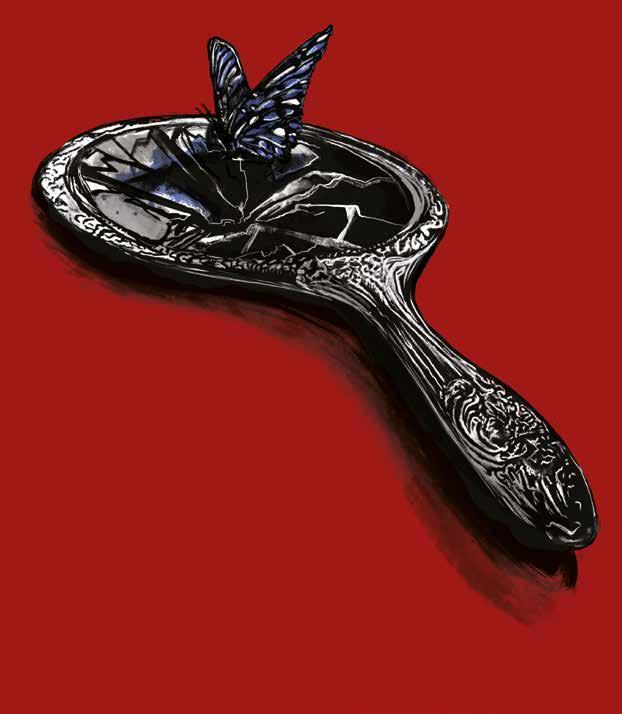

 BY ARRANGEMENT WITH EDWARD SNAPE FOR FIERY ANGEL LIMITED
BY ARRANGEMENT WITH EDWARD SNAPE FOR FIERY ANGEL LIMITED